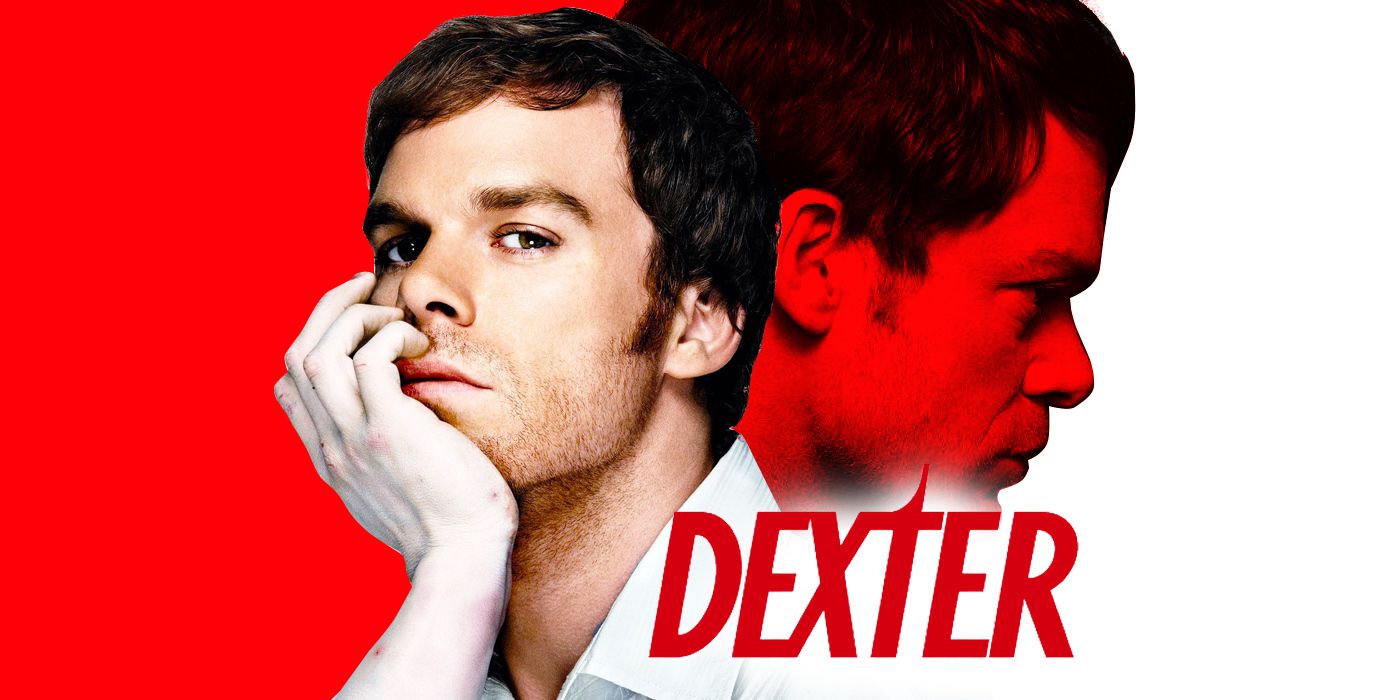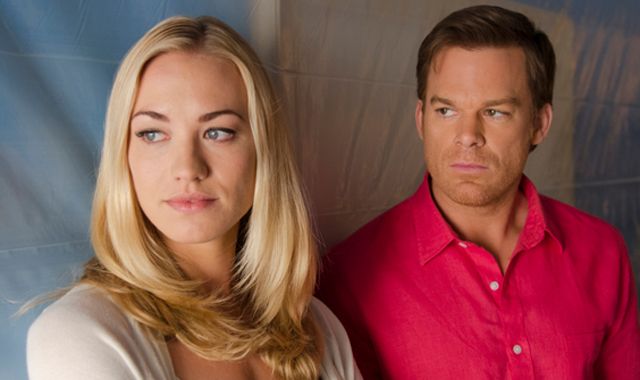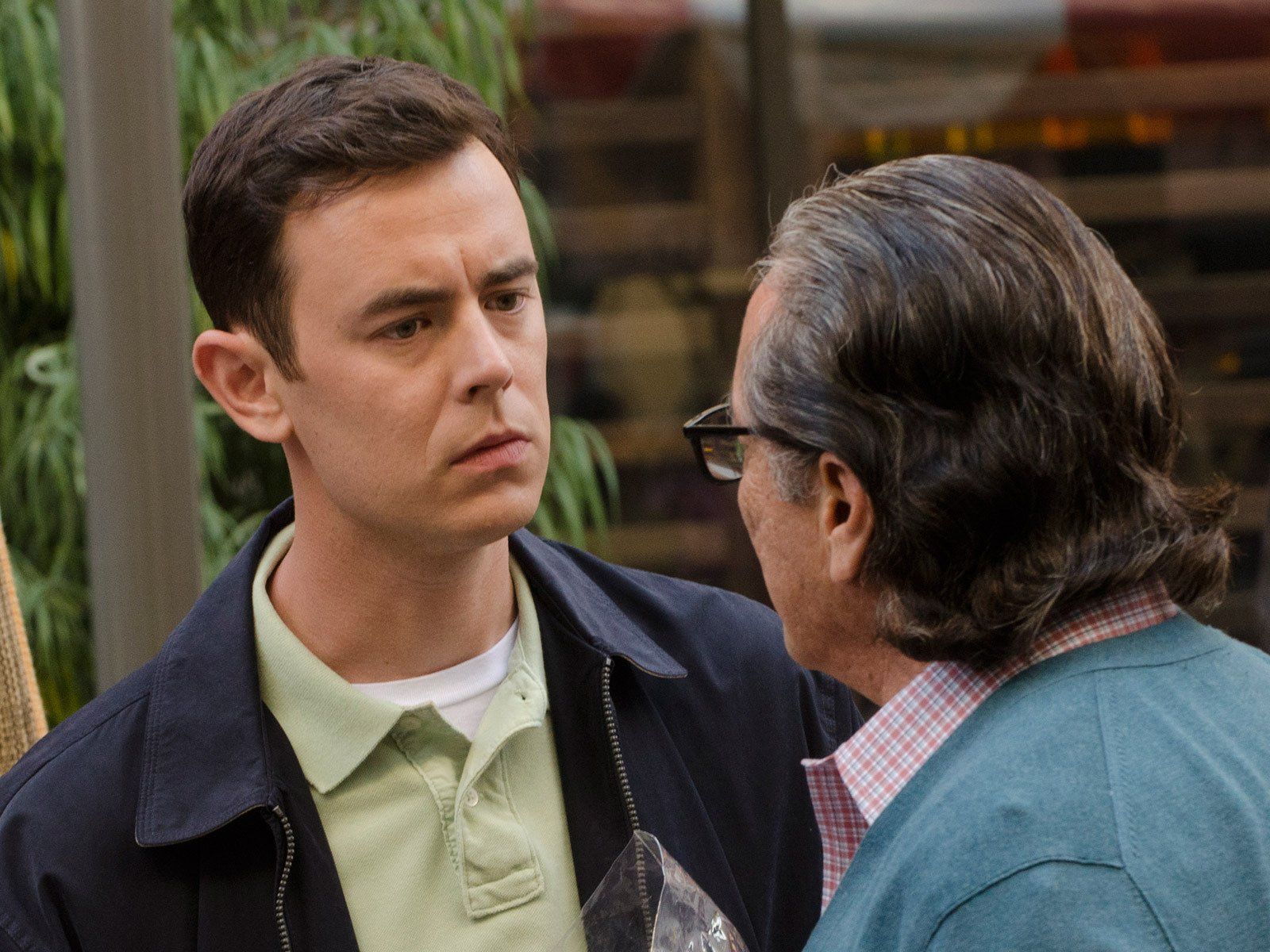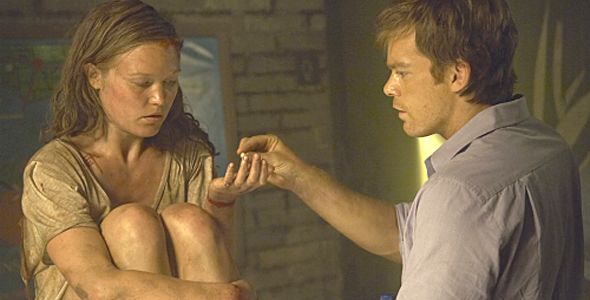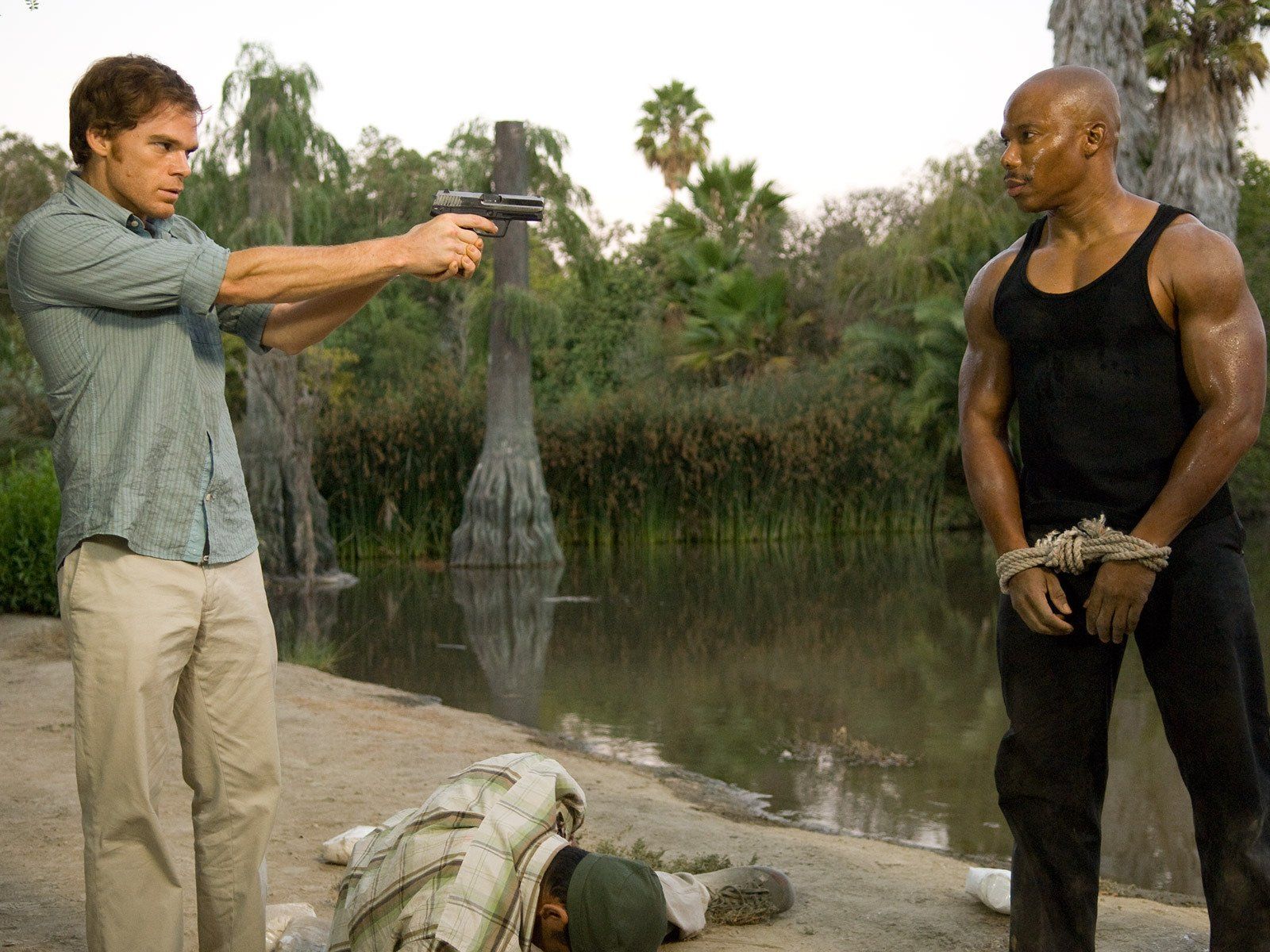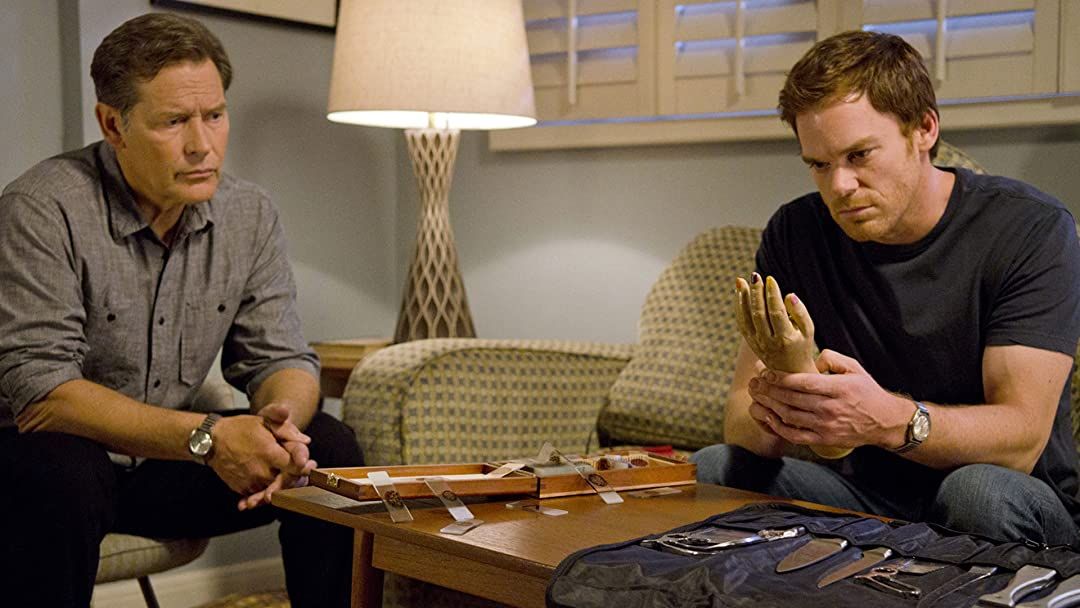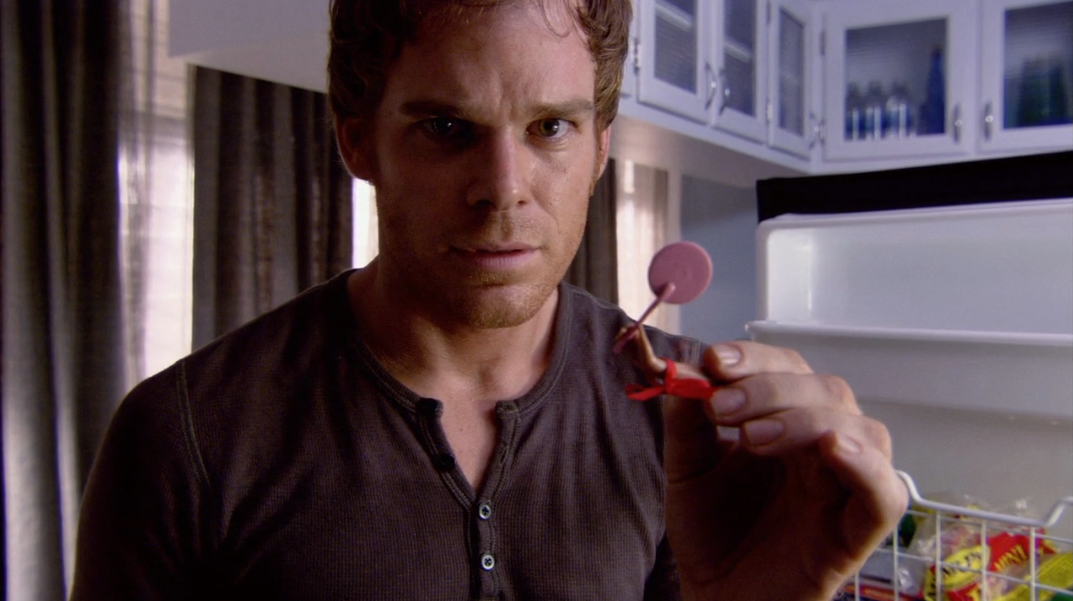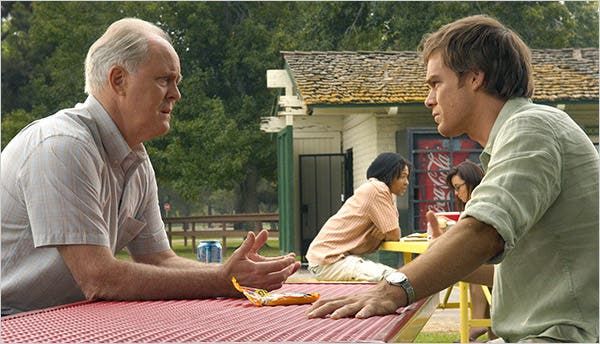From 2006 to 2013, Showtime’s Dexter captivated fans by offering a new take on police dramas. Instead of following the work of police officers trying to catch bad guys, Dexter dissects crime scenes through the eyes of a serial killer, the vigilante after which the series is named, and who’s brilliantly brought to life by Michael C. Hall. In the best of its eight original seasons, Dexter makes us question the morality of wanting to kill bad guys while offering its characters the chance to grow in the face of challenges. Unfortunately, we also get sloppy storytelling in the worst season, as the focus shifts from complex character development to whatever the writers think might shock the public.
Still, Dexter remains a highly re-bingeable series if you are prepared to endure its lowest moments. So, now that Dexter: New Blood promises to give Dexter Morgan’s story a worthy ending, it’s time for us to rank all the eight seasons of the original run, from worst to best. We hope you brought some plastic sheets because things might get bloody messy.
8) Season 8
Season 7 ends with Debra Morgan (Jennifer Carpenter) making the ultimate sacrifice to keep Dexter out of jail: killing an innocent woman. While death is just a pastime to Dexter, committing such a heinous crime shatters Debra’s soul. So, it’s up for Season 8 to explore precisely how Debra’s crime will impact her relationship with Dexter, right? Wrong! Season 8 uses a time jump of six months to give Dexter his everyday life back, transform Debra into a drug-addict, and erase any trace of character development the supporting cast had in the previous season. Unable to deal with the complex relationships of previous seasons, Season 8 also introduces a new villain in an ill-judged attempt to mimic some of the show’s best antagonists.
Of course, since the focus of Season 8 has to be this new serial killer, the Brain Surgeon (Darri Ingolfsson), Dexter and Debra need to make up in just a couple of episodes in an underwhelming conclusion for a story arc that was developed in Season 7. The worst of it all? That cursed finale cowardly avoids painting Dexter as a real villain or giving him proper redemption. Unable to decide if Dexter’s crimes needed to be accounted for or if he was deserving of love, Season 8 just ends the series with a finale that’s bloated, poorly written, and one of the worst endings in the history of television. Hopefully, New Blood can fix that.
7) Season 6
In a series that’s determined to discuss good and evil, it’s not a bad idea to put some religion in the mix. After all, religion is the base of morality for most people in the world, so it makes sense to question Dexter’s beliefs and how faith can be used both as a tool for redemption or a justification for horrible acts. The problem is that Season 6 discusses religion with the same proficiency as the drunk uncle that shows up at Christmas dinner and wants to let you know he’s a specialist in the subject just because he went to the church twice that year. There’s absolutely no depth in Season 6, and different episodes try to paint Dexter as an evil atheist or a misguided soul who the word of the Lord can save. It’s no wonder Season 6 fails so miserably after setting up questions it is incapable of answering.
The killer of Season 6, Travis Marshall (Colin Hanks), is also so unrealistic that it is hard to take him seriously. The crimes of the Doomsday Killer are the most spectacular of the entire franchise, as the villain builds theatrical scenes that mimic the Book of Revelations’ most shocking passages. But not even once does Season 6 try to explain how a single person, who never had any kind of special training, can leave a crime scene spotless. By striving to awe the fans with new and brutal killings, Season 6 gave away internal logic, making it more disappointing than mind-blowing.
6) Season 5
After original showrunner Clyde Phillips left the show at the end of record-breaking Season 4, it was up to co-executive producer Chip Johannessen to take the reins of Dexter and guide the show into a new direction. The problem is that Season 5 tries to do something new, while it also has to deal with the shocking Season 4 finale. With Rita (Julie Benz) dead, Dexter’s word is turned upside down, but Season 5 doesn’t give him enough time to heal and reflect on his life choices. We are just a couple of episodes in, and we are already introduced to Dexter’s new love interest, Lumen (Julia Stiles). Stiles does a fantastic job playing the victim-turned-vigilante, but we can’t help but wonder if things are not moving a little too fast since Rita’s corpse is still hanging around the show.
But then, Season 5 convinces us that Lumen is indeed a good match for Dexter, offering him a kind of companionship that Rita never could: Lumen understands Dexter’s darkness and even needs it to heal from the horrible things that happened to her. Dexter is ready to change how he behaves and become more human than ever with a partner with whom he can share his life entirely. So, why the heck does Lumen leaves at the end of Season 5? Season 5 promises fans that Dexter could have a new dynamic in his personal life but takes it away without a good reason. It seems like Season 5 is trying to prevent Dexter from having any kind of happiness, just to keep the show going, and that’s a lazy and uncreative solution that deserves all the hate it gets.
5) Season 3
There’s not much going on in Season 3, as characters reach the finale almost like they started the season. However, Season 3 is still a fine example of how good writing can elevate a show. That’s because Season 3 tries its best to understand what makes Dexter such an intriguing protagonist and how fans might have been fooled into thinking he’s a hero instead of a lesser villain. The introduction of Miguel Prado (Jimmy Smits) in Season 3 allows Dexter and the viewers to face the horrible truth about wishing other people are dead. At the end of the day, everyone is being selfish, and innocent people might get caught in our crusade for the greater good.
While previous seasons use Dexter’s strict code to justify his actions, Season 3 forces the killer to confront the consequences of his deeds. This critical milestone allows the show to become better. While we can like Dexter and even cheer for him while he’s hunting people who are even worse than he is, the fact remains that our dear protagonist is a cold-blooded killer that puts innocent lives at stake for his selfish reasons. This realization would be essential for the shocking finale of Season 4, when Dexter pays a high price for his self-centered viewing of the world.
4) Season 2
When Season 1 reaches its finale, we already know what to expect from upcoming seasons: we’ll have a new serial killer for Dexter to hunt, and that’s just fine for this show. However, little did we know that Season 2 would flip the series concept upside down by making Dexter the killer hunted by the police. Instead of being the predator, Dexter becomes the prey, and the entire season is a race against time for Dexter to erase all the evidence he left behind and pin the identity of the Bay Harbor Butcher on another person.
Season 2 not only feels unexpectedly fresh but also forces Dexter to confront the humanity inside himself. While Rita and her children are primarily a cover that Dexter uses to pretend he’s a regular human being, his involvement with Lila (Jaime Murray) forces him to reevaluate what a girlfriend truly means to him. While Season 1 is all about how isolated Dexter feels from society, Season 2 starts his long journey to blending in and realizing there are parts of his mind that are still human, grounded in the dreams of a comfortable life with loved ones. Lastly, Season 2 also has the genius idea of dealing with Dexter’s killing compulsion as drug addiction, allowing the viewer to understand better what’s going on in the protagonist’s mind.
3) Season 7
Considering that the series lost its way after the departure of Phillips, it’s surprising to see how good Season 7 turned out to be. So many narrative arcs are being developed simultaneously during Season 7 that it would be understandable if some things got out of hand. Yet, everything ends up being connected not only by the same main storyline but also by the theme of love. Season 7 is all about romance, about finding a special someone who can accept you for who you really are. And, above all, Season 7 is all about how far you are willing to go to protect (or avenge) your loved ones.
Season 7 is the only season of the second half of Dexter’s original run that’s not concerned about the villain of the moment and instead really goes the extra mile in developing its set of unforgettable characters. First, Dexter finds true love and acceptance in Hannah McKay (Yvonne Strahovski), a killer who helps him take responsibility for his actions. At the same time, Debra is trying to deal with the revelation that the most important person in her life is a serial killer. Finally, even the big baddie of Season 7, Isaak Sirko (Ray Stevenson), turns out to be a passionate soul seeking vengeance against the person who took his lover away from him. Season 7 is all about human relations, without a clear hero to cheer for, nor a villain to root against. It’s just a bunch of messed-up people trying to do their best in impossible situations. It’s no wonder Season 7 feels so human.
2) Season 1
Even the best shows usually have a somewhat bumpy start. Most series start production without knowing if the show will be picked up for multiple seasons. So, it’s easy to understand how the writers’ room has some trouble giving the first season a proper conclusion while leaving enough breadcrumbs behind for fans to follow in the future. Season 1 of Dexter, however, doesn’t face this issue, as it works perfectly well as a standalone story. Of course, there are bits and pieces scattered around like body parts, which can be picked up for the following season — and indeed they were. However, the main focus of Season 1 is to tell the tragic tale of Dexter, a serial killer who cannot connect with the rest of the world and will give up his only opportunity to be truly seen because of a code he was trained in to accept with no further questions.
The cat and mouse game between Dexter and the Ice Truck Killer (Christian Camargo) is already engaging enough. But once it’s revealed the two killers are long-lost brothers, the series shifts from a cop thriller with splashes of horror to a deep drama about letting go of the past and embracing your true nature. The final kill of the season is heartbreaking, and when Dexter darkly dreams about a world that can accept him for what he does, he can feel the unbearable loneliness the vigilante must bear. Season 1 of Dexter is television at its best, and few shows are so lucky to have such a strong start.
1) Season 4
If there’s a season that sums up what Dexter is all about, that would be Season 4. Until Season 4, Dexter struggles to build a regular life while he hides his dark urges from everyone he loves. Dexter believes he’s capable of juggling everything, but when he’s faced with the Trinity Killer (John Lithgow), he realizes you cannot be a serial killer and a loving person at the same time. The duel between Dexter and Trinity exposes the protagonist’s biggest fear of becoming a true monster and only hurting everyone around him. But it also makes Dexter realize that Trinity is a different kind of beast, as the protagonist is actually capable of love. So, the confrontation with Trinity makes Dexter realize he has human feelings, that his father was wrong, and that he can become a better person. Unfortunately, this realization comes too late, when Dexter has already risked everything to catch Trinity. And by putting his urges above the safety of his loved ones, Dexter loses his family.
Even if he doesn’t want to hurt the people around him, Dexter cannot keep them safe, especially since he refuses to let go of his urges. That’s the dramatic condition of Dexter, a man who longs for human connection but jeopardizes every relationship to feed an addiction he refuses to admit he could control. Season 4 exposes the core ideas of Dexter as no other season, and for that, it should be remembered as the highest point of the show.

